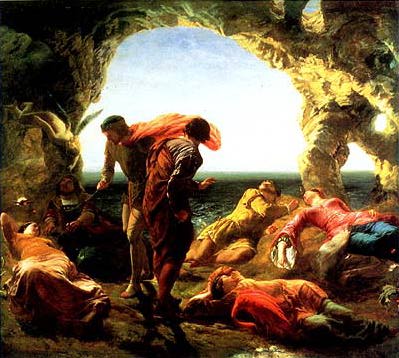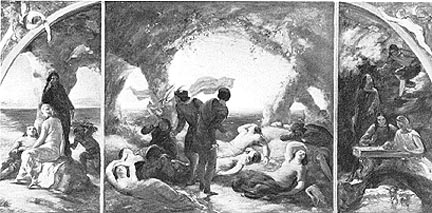I really enjoyed viewing the performance of The Merchant of Venice, presented by Brigham Young University. This performance took a new approach to the play by including modern references, such as The Purple Turtle as the place of business, Doubloons as the form of currency, and Stratford as the place of much of the action. The actors were wonderful at mixing the old with the new, while making the performance entertaining for a young audience. They practiced round theater with has the audience placed all around the actors, including the floor seating in between the aisles from where the actors were performing the action. The characters of Gratiano, Nerissa, and Jessica were performed by some of the children in the audience as were other minor roles in the play. This involvement of the children made the performance more entertaining for the children and for the adults, as Gratiano called Shylock a name rather quietly and Nerissa did not say a word the whole play. This way of presenting The Merchant of Venice (or Stratford) was great for showing a work of Shakespeare in a way that made it exciting for kids. Even though some of the language was hard to understand for kids, the actors translated these parts into "modern English" so everyone is the audience would understand what was taking place. Overall, I was very satisfied with the performance. A performance like that is one I would take my own kids to someday.
the evil Shylock- this actor was great at his character...maybe a little too good. He kind of scared his fake daughter.
One of Portia's suitors; don't choose gold.
The major characters (played by adults); They put on a great performance that I believe got many of the kids there a bit more excited for Shakespeare.
Are there any Shakespeare works that you think would be difficult to adapt for kids?





